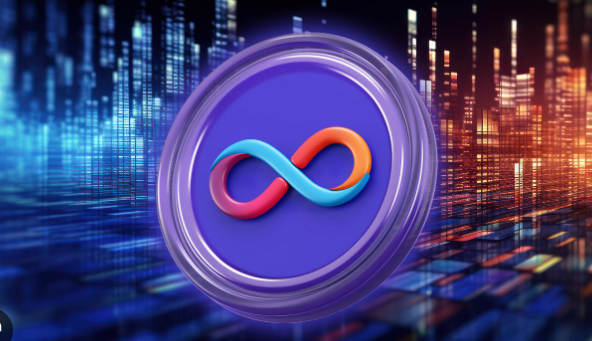
Internet Computer Protocol (ICP) is an important innovation in the current field of blockchain technology. ICP tokens play a variety of roles in Internet Computer (IC). From governance participation to payment of smart contract running resources, ICP tokens have a wide and diverse range of applications. This article will introduce in detail the various application scenarios and operating mechanisms of ICP tokens in IC.
The governance role of ICP tokens
ICP token holders can participate in the governance of Internet computers. To participate in governance, holders must stake ICP tokens, a process called “Neurons” on IC. After staking, Neuron owners can submit proposals and vote on proposals that promote the evolution of the IC. Every once in a while (currently every 24 hours), the neurons that voted and solved the previous proposal will receive corresponding rewards based on their voting weight.
The neuron system is an algorithmic governance system implemented by the Network Nervous System (NNS). The existence of NNS ensures that ICP token holders can effectively participate in the governance of Internet computers and promote the further development of IC through voting and proposals.
ICP Tokens and Smart Contracts
ICP tokens can also be converted into Cycles, IC’s second native utility token. The main purpose of Cycles is to power smart contracts built on the IC platform. Cycles are used to pay for the creation of containers (dapps/smart contracts) and the resources used by the containers (such as storage, computing and bandwidth).
The process of converting ICP to Cycles is a built-in function of NNS. NNS will burn ICP tokens and mint Cycles. This process pegs the value of Cycles to the Special Drawing Rights (SDR). For example, 1 trillion Cycles costs approximately 0.8 SDR. During the conversion process, ICP tokens are effectively burned and corresponding Cycles minted.
ICP Tokens and Node Providers
ICP tokens are used to pay the physical node providers who own the computing nodes that make up the IC. NNS periodically (currently every month) determines the number of tokens each node provider receives and sends the corresponding tokens to the node provider’s account. This mechanism ensures the stable operation of the IC network and economic incentives for node providers.
How to obtain ICP tokens
You can obtain ICP tokens in a variety of ways:
Exchange Purchase: You can purchase ICP Tokens on many crypto exchanges. Coinmarketcap maintains a fairly complete list of exchanges that can trade ICP tokens.
Governance participation: Participate in Internet computer governance and receive voting rewards.
Receive transfer: Receive ICP tokens from other accounts.
Developer Token Grants: Get developer token grants through the Internet Computer Association (ICA) or the DFINITY Foundation.
Node provider remuneration: Provide computing power as a node provider and receive tokens as remuneration.
Ledger container for ICP accounts and transactions
On IC, information about ICP tokens is kept in a ledger container, which is a component of the network’s nervous system. The ledger container maintains a mapping between account identifiers and ICP token amounts. The Ledger Container provides an API that allows principals (such as users or containers) who control the account to transfer ICP tokens to any other account. All transfers are recorded as transactions in the transaction classification container. The ledger also records the minting and burning of ICP tokens.
Control of the user's ICP account and neurons is associated with a unique principal. Principal IDs can be used in authorization mechanisms for operations involving principal accounts and neurons. The user principal is derived from the hash of the public signing key and is used to authorize users to create digitally signed transactions on it. It goes without saying that a user's private signing key should be generated securely (e.g., with sufficient entropy), should be stored securely, and should be backed up. Depending on the value of the ICP token (or neuron) controlled by the key, the user can make a trade-off between the security of the key and the level of friction required to use the key.
Conclusion: ICP tokens have a wide range of applications in Internet computers. From governance participation to payment of smart contract running resources to economic incentives for node providers, ICP tokens play an indispensable role in the IC ecosystem. With the continuous development of Internet computer technology, the application scenarios of ICP tokens will become richer and more diverse, which will further promote the innovation and application of blockchain technology.
The multiple roles and applications of ICP tokens make it a shining pearl in the field of blockchain technology. Whether participating in governance, supporting smart contracts or incentivizing node providers, ICP tokens have demonstrated their strong utility and potential. I hope this article can help readers better understand the multiple roles and application scenarios of ICP tokens, and provide some inspiration for the future development of blockchain technology.